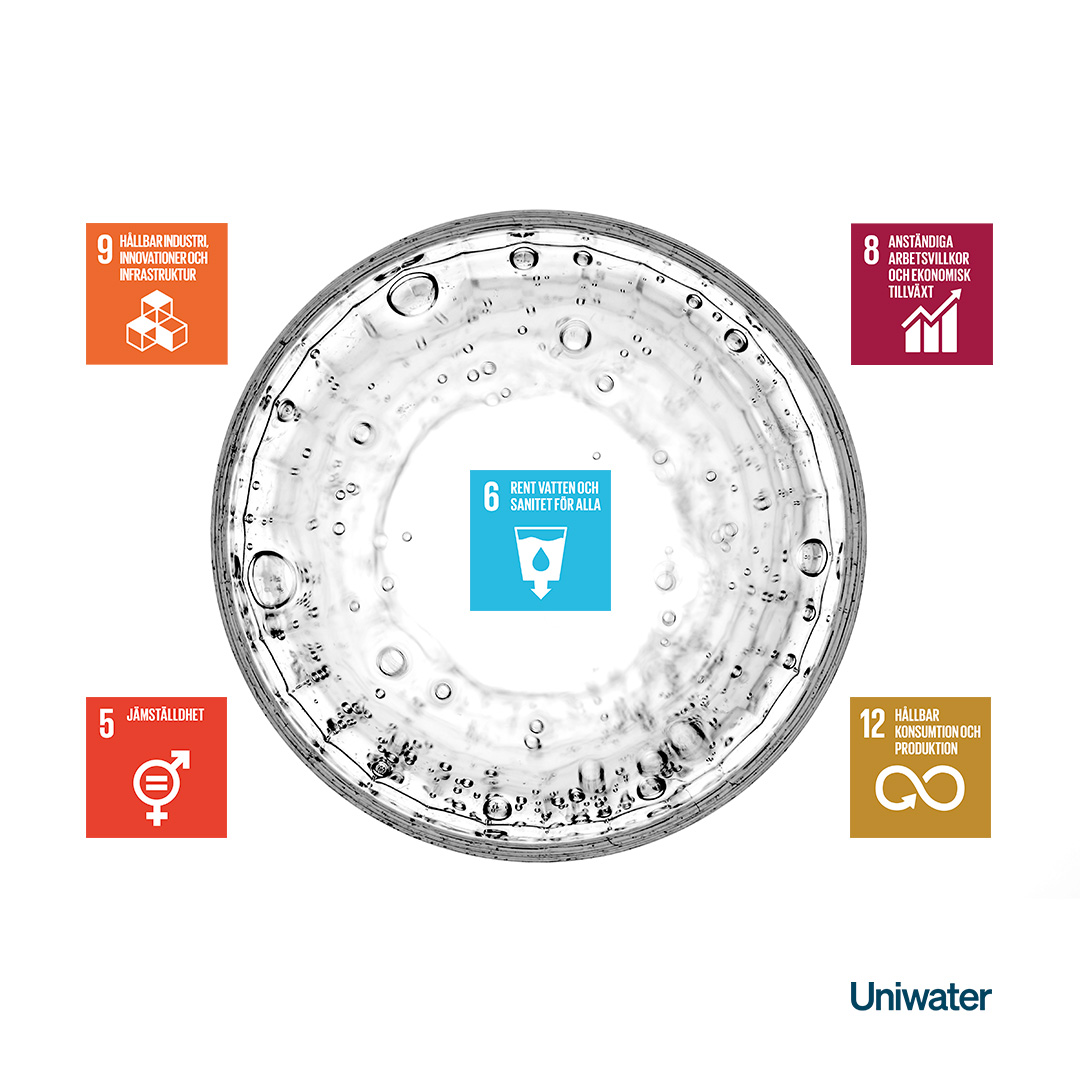Sustainability – More Than a Promise
Sustainability is essential for both the environment and people’s well-being. We believe in circularity and positive impact, both now and in the long term.

By developing water infrastructure, we contribute to clean water and sanitation – fundamental conditions for health, development, and a good life. We always strive to use renewable energy and sustainable technologies.
A Sustainable Strategy
For us, environmental and social responsibility means working responsibly to continuously lessen our impact. Our strategy is based on six central sustainability goals: energy reduction, reduced climate impact, increased material circularity, promotion of gender equality, higher employee satisfaction, and continuous skills development.
These sustainability goals guide us in our daily work. Together, we can achieve real positive change.

Towards Global Goals
We focus our efforts on five of the UN’s global goals: clean water and sanitation, gender equality, decent work conditions and economic growth, sustainable industry, innovation, and infrastructure, as well as sustainable consumption and production. These goals are central to our operations.
Sustainability Report 2023
Download our latest sustainability report and learn about the sustainability work happening within our subsidiaries.
The report describes the progress made since the previous year and the efforts that have yielded results.
Fyll i din epostadress nedan för att ladda ner Uniwaters hållbarhetsrapport för 2023.Hållbarhetsrapport 2023
Our Three Focus Areas
Our goal is to be an industry leader in sustainability by focusing on social, ecological, and economic aspects.
ECOLOGICAL SUSTAINABILITY
From Words to Action
SOCIAL SUSTAINABILITY
Here We Talk About the Workforce
By promoting diversity and providing development opportunities, we create an open and inclusive work environment.
ECONOMIC SUSTAINABILITY
The Economy Must Also Hold Up
Sustainability News
Uniwater Academy
Learning and development encourage employees to grow, thrive, and stay. Uniwater Academy gathers our offering within skills development, complementing our own training with external courses.
Continuous skills improvement is part of our offering to be an attractive employer.
